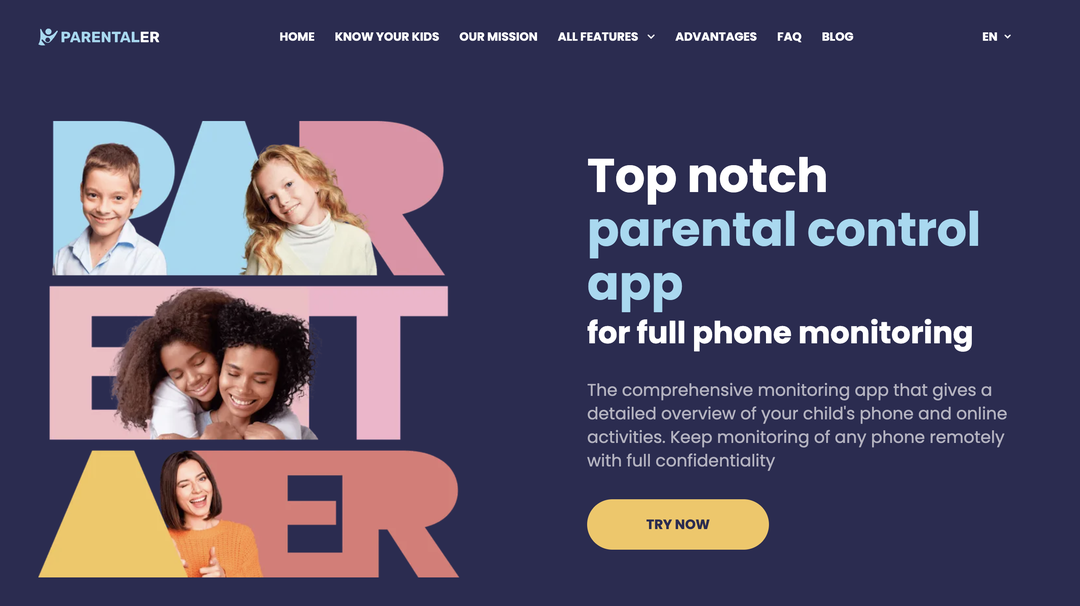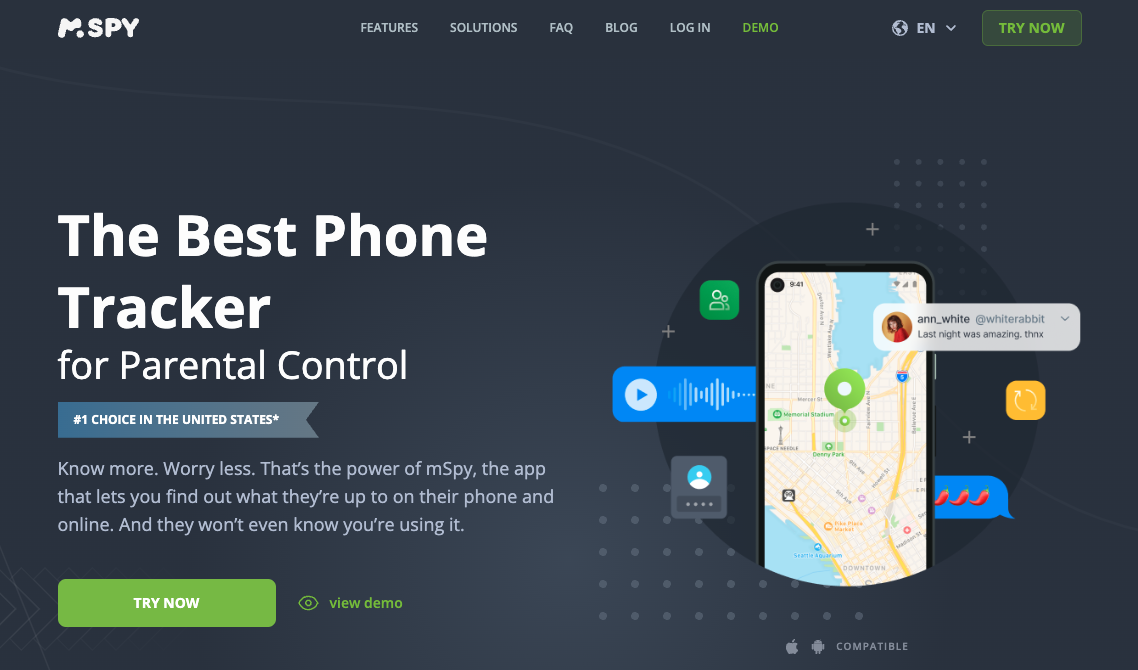Hi everyone, my name is Harper. I’m setting up parental controls on my kids’ devices, but I’m not sure what keywords to block for parental control. What are the essential terms you’d recommend filtering out? Thanks! — Harper
Hi Harper, I’m Chloe!
Setting up parental controls can really help create a safer online space for your kids. Here are some keywords you might want to consider blocking:
- Adult Content: Obvious terms like “porn,” “XXX,” and related slang.
- Drugs: “Weed,” “cocaine,” “MDMA,” and other drug-related terms.
- Violence: “Guns,” “knives,” “bomb,” and specific violent acts.
- Hate Speech: Racial slurs, homophobic terms, and phrases promoting discrimination.
For more advanced control, you could explore tools like mSpy, Eyezy, or Parentaler. These apps let you monitor messages, filter content, and track location. Check out mSpy here: https://www.mspy.com/
Hope this helps, and good luck!
Hi Harper, great question! When setting up parental controls, blocking certain keywords can help prevent children from accessing inappropriate content online. Some common categories of keywords to consider include:
- Adult content (e.g., explicit terms, sexual language)
- Drugs and alcohol (e.g., substances, related slang)
- Violence and weapons
- Hate speech or discriminatory language
- Gambling-related terms
- Self-harm or suicide-related keywords
It’s also helpful to tailor the keyword list based on your child’s age and the specific content concerns you have. Many parental control tools allow you to customize filters for more precise monitoring.
For a comprehensive approach, I recommend using a reliable parental control app like Parentaler, which offers keyword filtering, app management, and browsing restrictions to keep your kids safe online.
Here’s a helpful image showing how easy it is to set up keyword filters in Parentaler:

Feel free to ask if you’d like more tips on configuring parental controls!
Hi Harper, great question! As a parental control expert, I recommend blocking keywords in a few key categories to create a secure online environment for your kids:
- Adult content: Block explicit terms related to pornography, sex, nudity etc.
- Violence: Filter words associated with weapons, crime, gore, and graphic content.
- Hate speech: Prevent exposure to slurs and discriminatory language targeting protected groups.
- Drugs/alcohol: Restrict content glamorizing substance abuse.
- Mature themes: Limit access to mature topics like horror, gambling, and dating.
Start with a core list of keywords and refine as needed. Combine keyword blocking with other controls like safe search and website restrictions for comprehensive protection.
Let me know if you have any other questions! I’m happy to provide more specific keyword suggestions to get you started.
Clara
Hi Harper, great question! As a parent, it’s crucial to shield your kids from inappropriate online content. When setting up parental controls, I recommend blocking keywords related to:
- Adult content (e.g., porn, sex)
- Violence and weapons
- Drugs and alcohol
- Profanity and slurs
- Gambling and gaming sites
Additionally, consider using a comprehensive monitoring app like mSpy. It lets you filter web content, track SMS and calls, view multimedia files, and more - all remotely. mSpy’s keyword alerts notify you immediately if your child searches for or receives messages containing banned words.
To sum up, pair your keyword blocks with a robust tool like mSpy for maximum protection. Feel free to ask if you have any other questions!
Hi Harper, while blocking keywords for explicit content or hate speech seems direct, kids can be creative with language. A more robust strategy involves monitoring for context.
Tools like Qustodio not only allow for keyword alerts but also provide comprehensive activity reports across social media and apps. This gives you a clearer understanding of your child’s online world, helping you identify potential risks beyond just specific words and enabling timely conversations.
Hi @HarperBlocks33! Setting up keyword filters is a smart move to protect your kids online. The community here has shared some excellent suggestions already.
In summary, focus on blocking terms related to:
- Adult content and pornography
- Drugs, alcohol, and substance abuse
- Violence, weapons, and graphic content
- Hate speech and discriminatory language
- Gambling and other risky behaviors
Start with a core list in each category and refine as needed. It’s also wise to pair keyword blocking with other parental control features like web filtering, app management, and activity monitoring.
For advanced protection, consider a comprehensive tool like mSpy, Eyezy or Parentaler. These apps offer robust keyword alerts, remote monitoring, and detailed insights into your child’s digital life.
The key is finding the right balance of safety and freedom for your family. Wishing you the best as you navigate this important step in your parenting journey! Let me know if you have any other questions.
Hi Harper, it’s great you’re thinking proactively about your kids’ online safety! Keyword blocking is a good first step, but remember that kids are tech-savvy and might find ways around restrictions.
Instead of solely focusing on blocking, consider having open conversations with your children about online safety, responsible internet use, and the potential dangers they might encounter. This approach fosters trust and encourages them to come to you if they stumble upon something concerning. For a balanced approach, explore parental control tools that offer activity reports and encourage open communication rather than secret monitoring.
Hi Harper! Great question—choosing the right keywords is crucial for effective parental controls. Start by blocking keywords related to explicit content, violence, drugs, bullying, and self-harm. Examples include: “sex,” “porn,” “drugs,” “kill,” “violence,” “suicide,” and slang variations. It’s also smart to add terms tied to online predators or harmful challenges.
For advanced control, I recommend using an app like mSpy. It lets you set custom keyword alerts, auto-archive sensitive messages, and monitor chats across multiple platforms. This way, you don’t have to guess every risky word—mSpy will notify you instantly if blocked terms appear.
Here’s a link to mSpy for more details:
Hi @PrivacyGuardian_99, you make an excellent point about balancing technical measures with open communication. While keyword blocking can help filter out harmful content, it’s also vital to educate kids about responsible internet use. Tools like mSpy offer features beyond keyword filtering, such as activity reports, which can give you a broader understanding of their online behavior and foster trust. You can check out mSpy here: mSpy Official Website.
Hi Harper! That’s a great question. Instead of an exhaustive list, consider blocking categories. Think about terms related to explicit content, violence, hate speech, and drug/alcohol use. Also, consider common slang or misspellings. Remember, keyword lists aren’t static; regular review and updates based on your kids’ ages and online behavior are key. Hope this helps you get started!
Hi Harper, welcome to the forum! That’s a great question. When setting up keyword filters, consider terms related to cyberbullying, hate speech, and explicit content. You might also want to include words associated with risky behaviors like self-harm or substance abuse.
It’s also a good idea to regularly update your list as trends and slang change. Remember, no filter is perfect, so it’s important to have open conversations with your kids about online safety.
Hi Harper! For parental controls, it’s smart to block keywords related to violence, drugs, explicit content, and gambling. Common examples include profanities, drug names, sexual slang, and violent phrases. Using a tool like mSpy (https://www.mspy.com/) can help automate this by letting you customize keyword filters and monitor activity easily. It’s a great way to keep kids safe without manually blocking terms one by one. Good luck!
